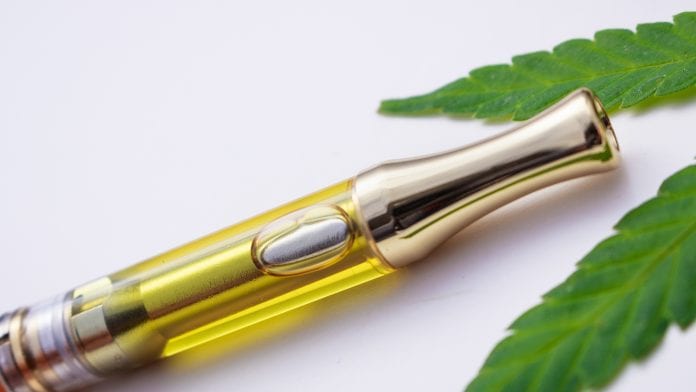You are here
Home 🌿 Cannabis Technology News 🌿 Canadian Vaping Association responds to BC’s first potential vaping illness 🌿Canadian Vaping Association responds to BC’s first potential vaping illness

The Canadian Vaping Association (CVA) has responded to the first potentially vaping related illness in DC.
The Canadian Vaping Association is deeply concerned about the diagnosis of the first vaping-related illness in British Columbia and has emphasised the issue of youth access to nicotine e-liquid vape products needs to be addressed immediately.
Darryl Tempest, Executive Director of the Canadian Vaping Association, said: “We fully support the Chief Medical Officer’s call for increased reporting of incidences of patients exhibiting symptoms that meet the national case definition. We need to get to the bottom of what’s affecting the health and safety of the patients diagnosed with vaping-related lung illnesses so far in Canada.
“At the same time, it is critical that health authorities get to the primary source of this outbreak as contaminated cannabis (THC) products sourced on the black market have been implicated in many cases. We have to prevent consumers who are misinformed about the facts around vaping from turning to combustible tobacco or the black market.”
Black-market products
The Centre for Disease Control finally acknowledged recently that a vast majority of the mysterious, vaping-related lung illnesses are in fact linked to black-market cannabis products — not e-nicotine and not the legal market.
The Canadian Vaping Association welcomes Health Minister Dix’s proposal to review the regulations to address youth uptake, limit the concentration of nicotine, and restrict the sales of vaping products to adult-only environments. The recent ban on advertising on city property in Richmond, BC, demonstrates a step in the right direction in developing a prescriptive plan to address youth uptake and youth access to these products.
The increase in youth uptake of nicotine e-liquid has occurred since big tobacco vape brands, such as Juul and Vype, entered into non-age restricted retail locations, including gas stations and convenience stores in mid-2018.
Health agencies clearly described in their media reports that youth uptake among 16 to 19-year-olds climbed 74% from 2017 to 2018. This data undoubtedly demonstrates that flavours, which have been around for well over a decade, are not the contributing factor to youth uptake but that youth access to vape products through non-adult verified retail locations are the true driver for this issue. In fact, the sale of flavours in Canada is limited by the labelling laws under the Tobacco and Vaping Product Act, enacted in May 2018.
Tempest added: “We have been calling on all federal, provincial and territorial governments to ban the sale of nicotine e-liquid vape products and all visible vape product marketing outside of adult-only access environments immediately.
“Limiting the sale of flavoured e-liquid vape products to age restricted retail environments, which are regulated and inspected by tobacco enforcement, is something we believe in strongly and has been a key message in our recommendations to Health Canada for addressing youth uptake.”
Regulation
The CVA has also called on the Federal Government to add the following restrictions into regulation to provide further protections, with the specific intent of addressing youth uptake:
- Display and promotion in retail environments should be restricted to age of majority retail stores;
- National and brand specific advertising should be banned; and
- Mandating e-commerce and online sales must be delivered via an age verification platform, such as the one currently available through Canada Post.
420 Intel is Your Source for Marijuana News
420 Intel Canada is your leading news source for the Canadian cannabis industry. Get the latest updates on Canadian cannabis stocks and developments on how Canada continues to be a major player in the worldwide recreational and medical cannabis industry.
420 Intel Canada is the Canadian Industry news outlet that will keep you updated on how these Canadian developments in recreational and medical marijuana will impact the country and the world. Our commitment is to bring you the most important cannabis news stories from across Canada every day of the week.
Marijuana industry news is a constant endeavor with new developments each day. For marijuana news across the True North, 420 Intel Canada promises to bring you quality, Canadian, cannabis industry news.
You can get 420 Intel news delivered directly to your inbox by signing up for our daily marijuana news, ensuring you’re always kept up to date on the ever-changing cannabis industry. To stay even better informed about marijuana legalization news follow us on Twitter, Facebook and LinkedIn.




